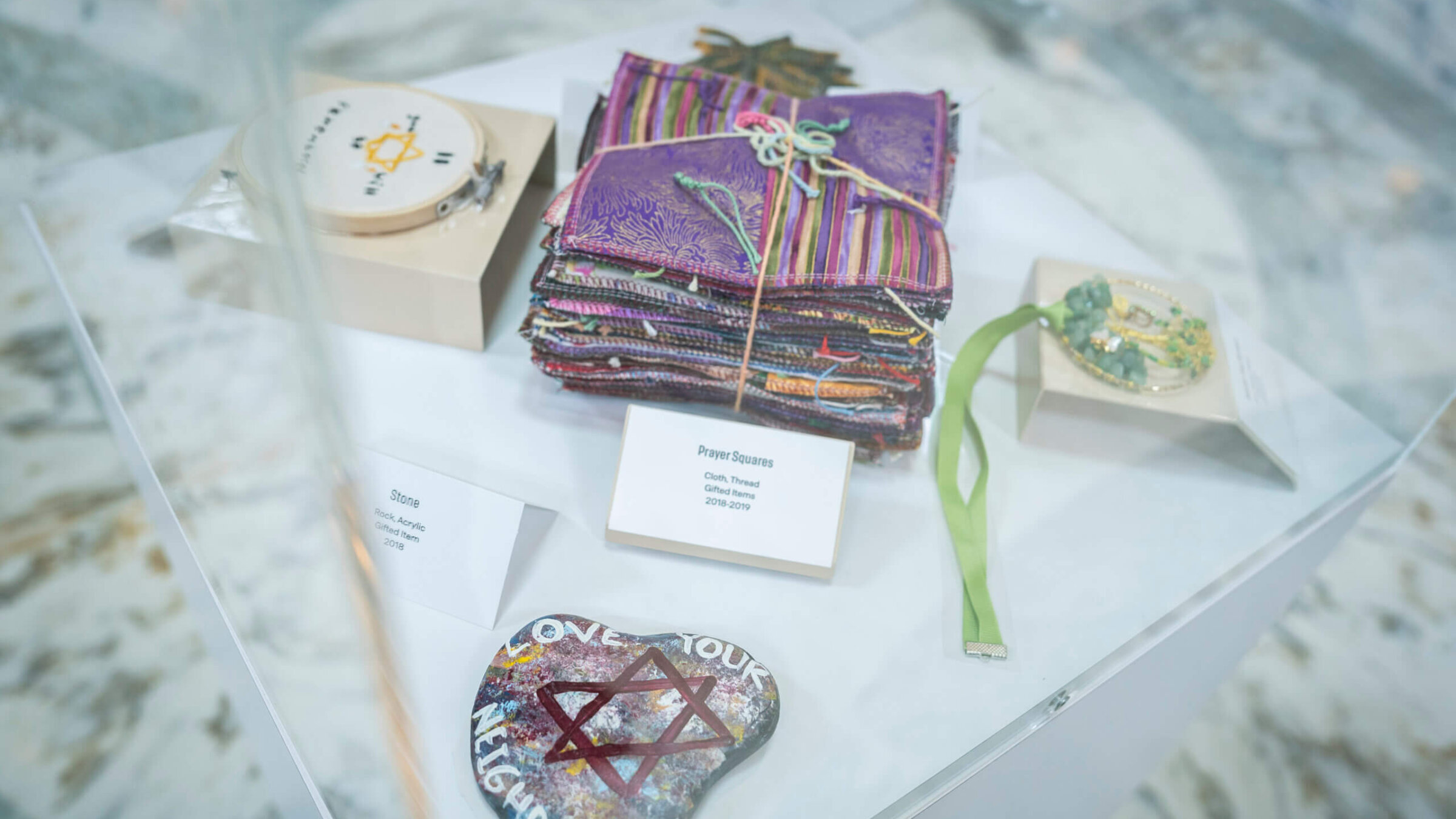I survived the Tree of Life shooting. Oct. 7 made the memory more painful
The Tree of Life community continues to begin again

Artifacts are displayed at a Tree of Life exhibition to commemorate the 2018 Pittsburgh Synagogue Shooting at Tree of Life, in the Russell Senate Office Building Rotunda on Capitol Hill in Washington, DC on Wednesday, June 05, 2024. Photo by Jabin Botsford/The Washington Post via Getty Images
As a survivor of the 2018 Pittsburgh synagogue shooting, I have spent the last six years wrestling with holding my grief without being consumed by it. I’ve grappled with striking the right balance between remembering and moving forward.
I have watched my congregation and our community struggle with overwhelming pain and loss as we continue to heal our lingering invisible wounds from Oct. 27, 2018, when a gunman murdered 11 beloved members of three congregations while worshiping in the Tree of Life synagogue.
Jewish tradition commands us to remember, requiring Yizkor or memorial prayer services to remember our loved ones. And yet, the Torah also commands us to protect our physical and emotional health.
These mandates often feel in conflict, especially this year. In my community, we will pause to remember and recite memorial prayers eight times in October and early November as we observe the Jewish High Holy Days of Yom Kippur, Sh’mini Atzeret, and Simchat Torah, and commemorate the lives lost on Oct. 7, 2023, and Oct. 27, 2018, in accordance with both the secular and Jewish calendars.
A ritual that once was a powerful moment of communal remembrance now engulfs an entire month, forcing us to confront layers of sorrow that seem impossible to carry or process.
Over the past six years, I and members of my community have found ourselves returning to the words of Holocaust survivor Elie Wiesel: “God gave Adam a secret – and that secret was not how to begin, but how to begin again.”
In my experience, every time I tell my story, every interview, every article mentioning our community is like the ripping off of a Band-Aid. With each tragedy, commemoration and yahrtzeit we must begin again.
Yet, I’ve learned that beginning again is possible because of the perseverance and resilience of our community and support from caring neighbors and mental health professionals. That it’s bearable with compassion for ourselves and by remembering the joyful memories of those we lost, not just the tragic causes of their deaths.
Through remembrance, which can be cathartic and comforting, we can find laughter, happiness and community.
For the Jewish people, resilience is not just a trait – it’s a tradition. Since the destruction of the temple over 2,000 years ago, our people have experienced unimaginable hardship and maintained unwavering hope.
From being exiled from our homeland to enduring the Holocaust and pogroms, our teachings, traditions and culture are deeply rooted in finding strength in community during the most solemn and darkest of times. Our collective generational trauma from the cycle of tragedy and distress has evolved as new threats of antisemitism and danger for our people at home and abroad arise.
But our Jewish story has always been about more than survival. It is about the strength and courage to remember where we’ve been as we look to the future. It is about choosing joy and celebration even when the world seems grim or we don’t know what’s next.
At the groundbreaking ceremony for The Tree of Life this past summer, we marked the moment not with hard hats and shovels, as is typical of such events, but with the breaking of glass, a custom at the end of Jewish weddings. As we gathered on stage to mark a new beginning, we sang a blessing, Shehecheyanu, “Blessed are You, Adonai our God, who has kept us alive, sustained us, and brought us to this season.”
It was a moment of celebration as we honored and remembered the pain of the past and our broken world. Through all we have been through, it was a moment that reminded us all there is joy and hope.
While there’s no easy path in difficult times, coming together as a community is important. Even the most resilient still need a shoulder to cry on and an outstretched hand on the journey to begin again. Kindness and empathy can make a world of difference.
Pain and grief can be overwhelming and some days, it’s easy to get lost in our memories. But we cannot allow ourselves to forget, because remembrance is a sacred act and an opportunity to inspire healing and hope in one another.















